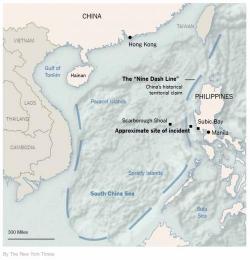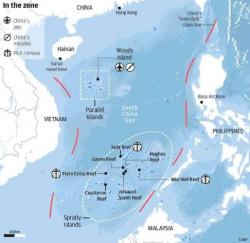China Blinks: Beijing Returns Seized Underwater Drone
China has blinked.
On Tuesday, Beijing has returned a U.S. underwater drone taken by one of its naval vessels in the disputed South China Sea last week after what it said were friendly talks with the United States, which reiterated its criticism of the "unlawful" seizure. The move could diffuse tensions after protests from the White House and critical tweets from President-elect Donald Trump.



